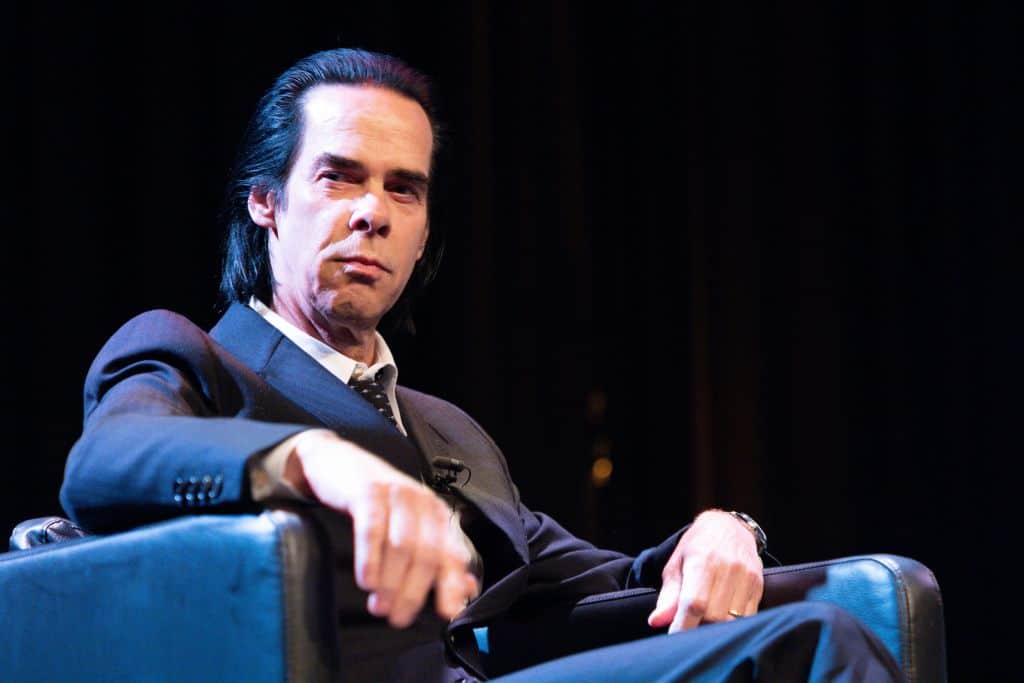To process his grief at the death of his teenage son Arthur, rocker Nick Cave has sculpted figurines of Satan, written film scores, and answered fans’ questions at his popular Red Hand Files website. More importantly, Cave has given up dabbling in Christian spirituality, and has finally declared himself to be a Christian.
Reflecting on his faith and his art, he told interviewer Sean O’Hagan in 2022: "All my songs are written from a place of spiritual yearning.” In the English mystical and moral tradition of Piers Plowman, <em>The Pilgrim’s Progress</em> and CS Lewis’s <em>The Great Divorce</em>, Cave has turned to dream visions to explain the painful, glorious journey of faith.
On <em>Wild God</em>, his new album with longtime band the BadSeeds, Cave’s songs showcase his hard-won consolation. But also, they chronicle the cosmic defeat of competing deities at the feet of the One – and a wild One at that.
On the opening track, "Song of the Lake”, Cave evokes Arthurian legend to share the first revelation born of his reverie: “He knew that even though he had found Heaven, such as described in the ancient scrolls, still he felt the drag of Hell upon his old and mortal soul.”
On the title track, we ascend spiritually like Augustine and Monica at Ostia, and Cave’s lyrics remind us of our tendency to style ourselves gods – anarchs who are sick and dying, but largely unaware of our fallen condition.
The real God, whose wildness makes our human conceptions of freedom seem risible, invites us into his limitless movement. Cave exclaims, “Here we go!” He then gives voice to the spiritual seeker who desires reality beyond his own “rotting ideas”, singing: “And the people on the ground cried ‘when does it start?’ And the wild God says, 'it starts with the heart, with the heart, with the heart'.”
On “Frogs”, strings and vibraphone introduce Cave’s vivid daydream of a walk home from church on a wet Sunday morning in London. In the grace-filled afterglow of Christian fellowship, the believer sees the whole of creation offering its praise, as “the frogs are jumping in the gutters, oh, leaping to God, amazed of love”.
The third track, “Joy”, ironically begins with Cave’s characteristic melancholy. He sings: "I woke up this morning with the blues all around my head.” But then a warm blare of horns enters the song, inviting heavenly mercy that soon comes, as Cave imagines seeing his deceased, redeemed son, who tells him: “We’ve all had too much sorrow. Now is the time for joy.”
Cave’s relief is palpable as he shouts: “Oh, joy!”
“Final Rescue Attempt” features synthesisers by Cave’s longtime collaborator Warren Ellis, producing a sci-fi feel with lyrics that pick up the Camelot motif from the opening track. One wonders how the loss of a son named Arthur may infect one’s dreams with literary legend and apocalyptic fears. He imagines: “You rode through the rain all the way from Castellain.”
“Long Dark Night” ranks among the great ballads of Cave’s oeuvre, with sombre piano and acoustic guitars leading to the big, emotional refrain: “Maybe a long dark night is coming down!” Clearly influenced by St John of the Cross, Cave’s words convey a sense of gratitude for the darkness before the dawn. The lyrics are choppy – like flashes behind one’s eyes in stolen moments of half sleep. “Oh, Lord,” Cave prays at the end.
The penultimate track, “O Wow O Wow (How Wonderful She Is)”, is a classic Cave love song, but here his usual eroticism takes a more innocent form, as a once-carefree couple share deeper love on the other side of great difficulties. Looking at his bride, he declares: “I can confirm that God actually exists.”
The original title for <em>Wild God </em>was meant to be <em>Joy</em>, but Cave changed his mind, perhaps aware that the word may come across as a synonym for happiness, thereby robbing it of the theological depth that CS Lewis, among others, have described. Instead, Cave chose to emphasise the unpredictable effects of grace from a source which fits into no one’s boxes and is tamed by no one’s desires.
This wild God exposes the lies of every competing deity. And it is for this God that Cave has awakened as an evangelist whose dreams have led him to reality.
The final song on the album, “As the Waters Cover the Sea”, offers a brief and gorgeous parting word of hope, with a gospel choir backing Cave’s plaintive crooning. He sings: “Peace and good tidings he will bring, good tidings to all things.”
On <em>Wild God</em>, we are reminded that in the Christian life, pain always serves a purpose. And the very end is not death, but life. Wild.
<em>Photo: Musician and author Nick Cave discussing his 'Faith, Hope and Carnage' book at Tanzbrunnen, Cologne, Germany, 5 June 2023. 'Faith, Hope and Carnage' is a book about Nick Cave's inner life. (Photo by Andreas Rentz/Getty Images.)</em>
<em>Andrew Petiprin is co-founder of the SpeSalvi Institute.</em>
<strong><strong>This article appears in the October 2024 edition of the <em>Catholic Herald</em>. To subscribe to our award-winning, thought-provoking magazine and have independent and high-calibre counter-cultural Catholic journalism delivered to your door anywhere in the world click <a href="https://catholicherald.co.uk/subscribe/?swcfpc=1"><mark style="background-color:rgba(0, 0, 0, 0)" class="has-inline-color has-vivid-cyan-blue-color">HERE</mark></a></strong></strong>.



